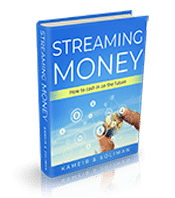11th November 2006, 02:03 pm
 What is Google Coop?
What is Google Coop?
In short: it is the Google search engine with your personal twist to it. Here’s what you can do with it:
* Place a search box and search results on your website.
* Customize the look and feel to match your website.
* Specify the sites you want to include in searches.
* Invite others to contribute to the search engine.
* Make money from relevant ads in your search results.
Google’s Co-op is coming surprisingly late since Vertical search was hip almost two years ago. What Google has done is enabling specialized search while retaining ownership of the search traffic. Google Co-op allows site owners to choose which Web sources to crawl and let them leverage their community of users to improve that index and results. Web site owners can use the platform to launch specialized search engines focused on the areas of their expertise. Ads will be sold and served through AdSense for Search.
During the presentation for the product’s release, Google executives demonstrated several instances of vertical search sites created during the program’s testing phase. These included a custom search interface for Intuit’s small business portal JumpUp.com and one for a climate science research group, at RealClimate.org. The latter, because of its non-profit status, is not required to carry the AdSense ads that will enable Google to monetize the product. Universities and government organizations are also exempt from ads. All individuals and for-profit entities using the product, however, must accept the company’s trademark sponsored links, and will share in revenue generated by them. The revenue split is the same as that offered across the AdSense network.
Site that want to build a search engine can submit a name, description and list of sites to be crawled for results on their engine-to-be. They then will receive a chunk of code they can use to add the specialized engine to their site.
I agree with Google executives who called Google Co-op one of the company’s most important product releases in Q4. For marketers who buy keywords through AdWords, the vertical search product likely won’t bring short-term changes in the way search audience.
The technology is similar to another customized search product, Rollyo, which launched over year ago; though there are differences between the two. Mainly, Google Co-op is potentially collaborative, meaning site users can take part in creating and improving the engine. It also can be hosted on a Webmaster’s own site and doesn’t require users to navigate to a Google-owned domain. In addition, Google Co-opis monetized with Google’s sponsored links.
You can see a sample for a Google coop site at QUASEO.com.
Category:
Search |
Comments Off on Personalized Search – Google Coop
3rd November 2006, 12:32 pm
The future of search will effect everybodys live in a much more powerful way then the appearance of the Internet or the search engines it brought with it. Most experts in the search industry agree that search as a working system is only 5% solved and that personalization is going to be the key driver to change the way search works today.
Assumptions about how to display search engine results pages to users are undergoing a constant transformation. Searching in the future will include self-learning software so that it would calculate the probability that a given user typing “apple” meant a company and not the fruit. And Google is using IP address identification to target user with country specific results.
But the future of search will influence much more than just the way we use text based computer searches. It will influence our daily live. Already we can see cars that are calling the manufacturer if they analyze a problem within the vehicle. We see Internet service provider partnering with cable companies (or buying them). Few realize that all of these seemingly unrelated events are all steps in the same direction: a world in which every medium will be connected in one way or the other to a network to exchange and store information.
Search your fridge content through the Internet? The refrigerator that knows what content it holds is almost old news. The next logical step is to make this information available to the owner through the Internet. And it is not Sci-Fi but a very realistic scenario that your refrigerator (and soon other household appliances) will send you an email about missing juice or expired mayonnaise. Or maybe you already signed up for the always full option at your local grocery store and the supplies you need, will be waiting in a cooler in front of your door.
Millions of people are already searching to endless libraries of other people’s stored audio and video files. How convenient would it be to have a personal search engine that knows my music taste and delivers just that (directly to my iPod)? And we may not have to zap through hundreds of television channels much longer to find the one show we really want to watch. The television set that learns my user behavior and suggest only the programs that fit my taste are probably already realty in some lab over at SONY making Yahoo’s recent partnership with TIVO obsolete.
But the future of search will also need to keep the little guys in mind as well as the local communities. Whereas today most small companies are still not available online, clever services start to appear that helps even the smallest company to surface in Google and Yahoo searches. The best example is a new service called LOXTER. LOXTER is an interactive online directory that combines the power of local search and online community. Christian Kameir of San Diego’s Internet marketing company, Colizer Inc explains: Businesses that are listed in LOXTER are more likely to come up in searches on Google, Yahoo and MSN. The reason for this is that the unique structure of the LOXTER portals allows users to connect to the business for free, using a click-to-call feature and leave verified feedback about their experience valuable information that is not available anywhere else on the Internet.
The future of search will also be in every single thing you come in contact with. It means if I need to loose weight I will not use Google to research diet plans but tell my car that I want to loose five pounds and it will email my refrigerator to replace regular Bud with the light version and throw out the salami.
Category:
Search |
Comments Off on The Future of search: Google, Yahoo, MSN or something totally new?
 What is Google Coop?
What is Google Coop?



